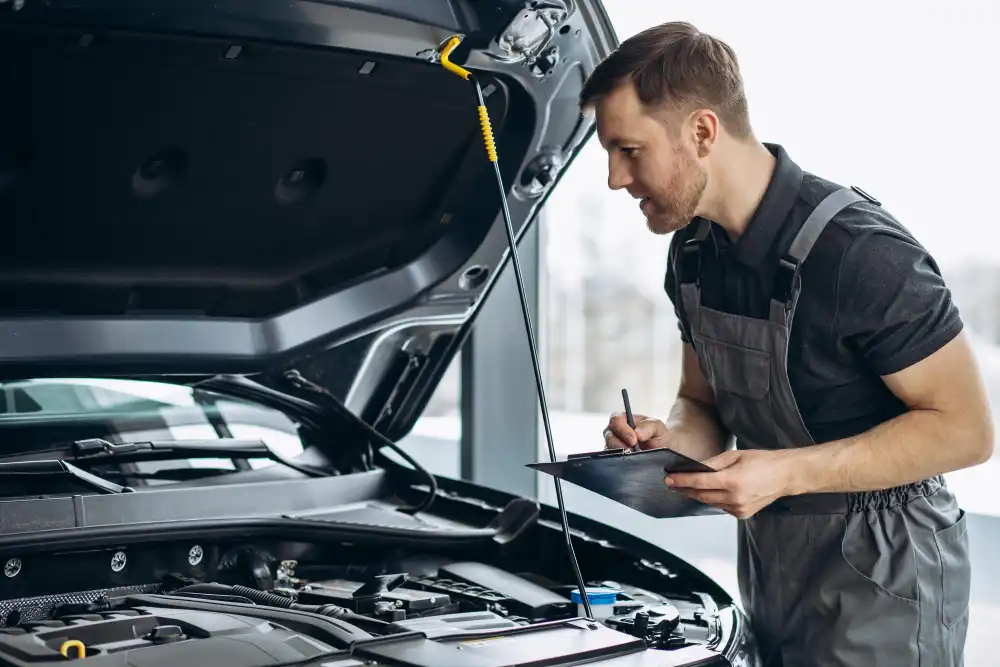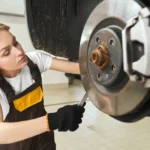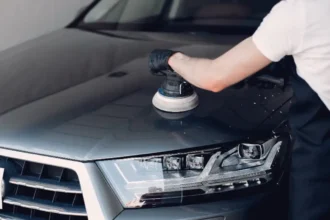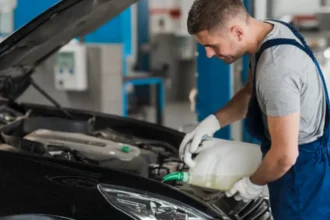Owning a car comes with its share of responsibilities. While everyone wants their car to run smoothly, car maintenance mistakes can lead to costly repairs and even dangerous situations. In this guide, we’ll highlight the top five car maintenance mistakes that car owners frequently make and how you can avoid them. Plus, we’ll provide actionable tips to keep your vehicle in top shape!
List of Car Maintenance Mistakes
1. Neglecting Regular Oil Changes
Changing your car’s oil is one of the most crucial steps in maintaining its engine. However, many car owners make the mistake of skipping or delaying oil changes, which can lead to severe engine damage over time.
Why This Is a Mistake:
- Dirty oil can cause engine wear and tear.
- Delayed oil changes can lead to engine overheating.
- Reduced fuel efficiency and higher emissions.
How to Avoid It:
- Stick to your manufacturer’s recommended oil change schedule (usually every 5,000-7,500 miles).
- Use the recommended oil type for your car.
- Regularly check your oil level and color to ensure it’s in good condition.
Key Tip: Set reminders on your phone or use an app to track your oil change schedule.
2. Overlooking Tire Maintenance
Your tires are your car’s only point of contact with the road, making tire maintenance critical for safety. Unfortunately, improper tire care, such as not rotating tires or checking tire pressure, is a common mistake.
Why This Is a Mistake:
- Uneven tire wear can reduce handling and traction.
- Low tire pressure leads to reduced fuel efficiency and can increase the risk of blowouts.
- Overinflated tires can cause a harsh ride and uneven wear.
How to Avoid It:
- Check your tire pressure monthly and ensure it matches the manufacturer’s recommendations.
- Rotate your tires every 6,000 miles for even wear.
- Inspect for tire tread wear using the penny test (place a penny head-down into the tread; if you can see Lincoln’s head, it’s time for new tires).
| Tire Pressure Guide | Effect on Car Performance |
|---|---|
| Too Low | Increased fuel consumption, tire blowout risk |
| Too High | Reduced traction, uneven wear |
| Just Right | Optimal handling, fuel efficiency |
3. Ignoring Brake Maintenance
Your brakes are your car’s most important safety feature, and neglecting their maintenance can be dangerous. Many car owners wait until they hear squealing or grinding noises before addressing brake issues.
Why This Is a Mistake:
- Worn brake pads can lead to brake failure.
- Ignoring brake fluid levels can result in decreased braking performance.
- Delaying brake repairs can lead to more costly repairs, like damaged rotors.
How to Avoid It:
- Have your brake pads inspected every 10,000 miles and replaced when necessary.
- Check brake fluid levels monthly.
- Listen for squealing sounds when braking, as this can indicate worn brake pads.
Pro Tip: If your car pulls to one side when braking, it’s a sign of uneven brake wear and should be inspected immediately.
4. Skipping Fluid Checks

Besides oil, your car relies on several other fluids to function properly, including transmission fluid, coolant, power steering fluid, and brake fluid. Skipping these checks is a common but avoidable mistake.
Why This Is a Mistake:
- Low coolant levels can lead to engine overheating.
- Low transmission fluid can cause transmission failure.
- Ignoring power steering fluid can result in steering issues.
How to Avoid It:
- Check your car’s manual for fluid check intervals and types.
- Regularly inspect fluid levels and top them up as needed.
- Pay attention to dashboard warning lights related to fluids.
| Fluid Type | When to Check |
|---|---|
| Coolant | Every 3-6 months |
| Transmission Fluid | Every 30,000 miles |
| Power Steering Fluid | Monthly |
| Brake Fluid | Every 2 years or 30,000 miles |
5. Using the Wrong Fuel
Using the wrong fuel is not as rare as you might think. Whether it’s putting regular gas in a car that needs premium or accidentally using diesel in a gas engine, the wrong fuel can damage your car.
Why This Is a Mistake:
- Using lower-octane fuel in a high-performance engine can lead to knocking and reduced performance.
- Diesel in a gasoline engine can cause the engine to seize.
How to Avoid It:
- Always check the fuel type recommended by your car’s manufacturer.
- Pay attention to the fuel type at the pump (especially if you switch between cars).
- Use premium fuel if your car requires it; using regular fuel in a premium-required car can decrease performance and fuel efficiency.
Quick Tip: If you accidentally put the wrong fuel in your car, don’t start the engine! Have the fuel drained immediately by a professional.
Frequently Asked Questions (FAQs)
Q1: How often should I get my car serviced?
A: It depends on your car and driving habits, but generally, every 12 months or 12,000 miles for a full service. Always follow your car manufacturer’s recommended service intervals.
Q2: How do I know if my tires need replacing?
A: You can use the penny test or look for tread wear indicators on your tires. If the tread depth is below 2/32 inches, it’s time to replace them.
Q3: Can I change my oil myself?
A: Yes! If you’re comfortable, you can change your oil, but be sure to use the correct oil and filter for your car. Many people prefer a professional to ensure it’s done correctly.
Q4: What’s the best way to extend my car’s life?
A: Regular maintenance is key. Stick to oil change intervals, check your tires, fluids, and brakes, and address small problems before they become big repairs.
Conclusion
Avoiding these common car maintenance mistakes can save you time, money, and the hassle of dealing with preventable repairs. Regular checks of your oil, tires, brakes, and fluids, along with using the right fuel, will ensure your car runs smoothly for years to come.
By keeping up with these essential maintenance tasks, you not only extend the life of your vehicle but also ensure safety and performance on the road.









